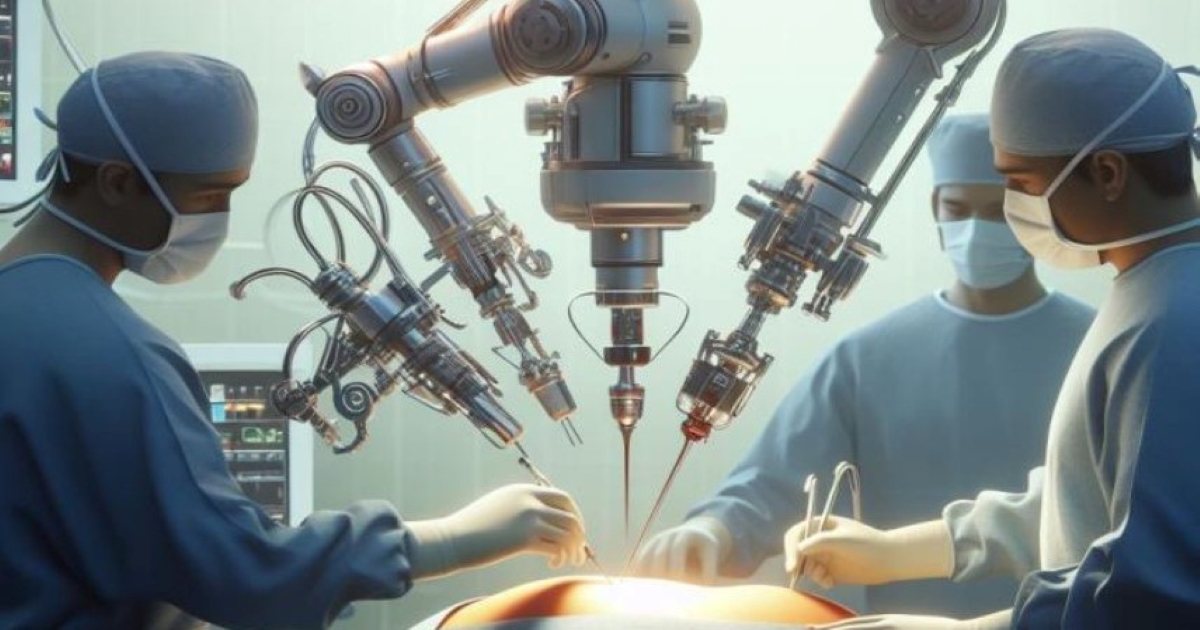- 2.5Impact Factor
- 5.5CiteScore
- 20 daysTime to First Decision
Prospects in Technology of Medical/Surgical Robotics and Intelligent Systems
This special issue belongs to the section “Biomedical Engineering“.
Special Issue Information
Dear Colleagues,
We invite researchers, practitioners, and innovators to contribute to our Special Issue on "Prospects in Technology of Medical/Surgical Robotics and Intelligent Systems". This issue aims to explore the latest advancements, challenges, and future directions in the development and application of robotics and intelligent systems in medical and surgical contexts. Topics of interest include robotic-assisted surgery, AI-driven diagnostic tools, machine learning applications in healthcare, human–robot interactions, telemedicine advancements, and the integration of intelligent systems in clinical workflows. We seek original research articles, comprehensive reviews, and insightful case studies that address technological innovations, clinical outcomes, ethical considerations, and the economic impact of these cutting-edge technologies. Contributions that demonstrate interdisciplinary approaches and collaboration between engineering, computer science, and medical fields are highly encouraged. Join us in shaping the future of healthcare by sharing your valuable insights and breakthroughs.
Dr. Richard Jaepyeong Cha
Dr. Chung Hyuk Park
Guest Editors
Manuscript Submission Information
Manuscripts should be submitted online at www.mdpi.com by registering and logging in to this website. Once you are registered, click here to go to the submission form. Manuscripts can be submitted until the deadline. All submissions that pass pre-check are peer-reviewed. Accepted papers will be published continuously in the journal (as soon as accepted) and will be listed together on the special issue website. Research articles, review articles as well as short communications are invited. For planned papers, a title and short abstract (about 250 words) can be sent to the Editorial Office for assessment.
Submitted manuscripts should not have been published previously, nor be under consideration for publication elsewhere (except conference proceedings papers). All manuscripts are thoroughly refereed through a single-blind peer-review process. A guide for authors and other relevant information for submission of manuscripts is available on the Instructions for Authors page. Applied Sciences is an international peer-reviewed open access semimonthly journal published by MDPI.
Please visit the Instructions for Authors page before submitting a manuscript. The Article Processing Charge (APC) for publication in this open access journal is 2400 CHF (Swiss Francs). Submitted papers should be well formatted and use good English. Authors may use MDPI's English editing service prior to publication or during author revisions.
Keywords
- surgical robotics
- intelligent systems in healthcare
- robotic-assisted surgery
- AI in medicine
- machine learning in healthcare
- human–robot interactions
- telemedicine
- robotic surgery innovations in surgical vision technologies
- diagnostic robotics
- robotics in diagnostics
- autonomous surgical robots

Benefits of Publishing in a Special Issue
- Ease of navigation: Grouping papers by topic helps scholars navigate broad scope journals more efficiently.
- Greater discoverability: Special Issues support the reach and impact of scientific research. Articles in Special Issues are more discoverable and cited more frequently.
- Expansion of research network: Special Issues facilitate connections among authors, fostering scientific collaborations.
- External promotion: Articles in Special Issues are often promoted through the journal's social media, increasing their visibility.
- e-Book format: Special Issues with more than 10 articles can be published as dedicated e-books, ensuring wide and rapid dissemination.

